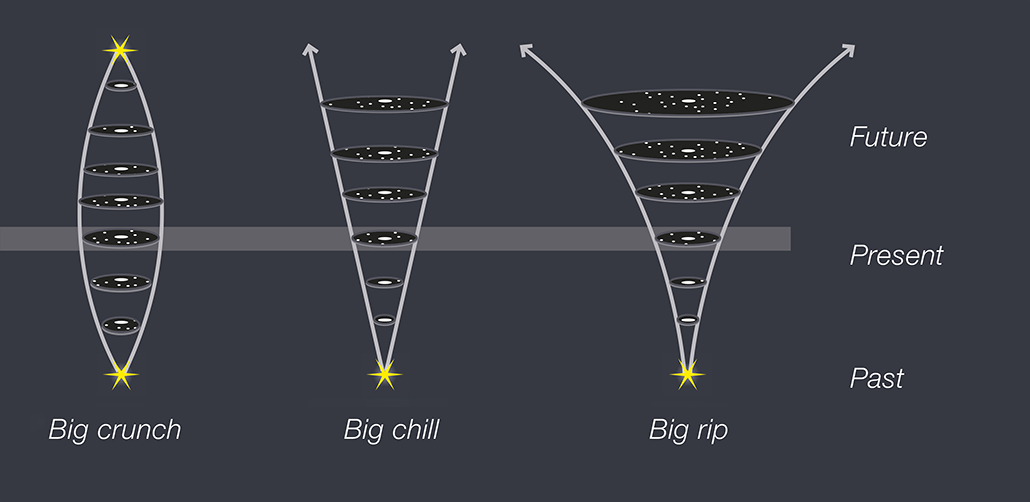Some endings are easy to predict. Throw a ball in the air and it will fall back down. Run off a diving board and you’ll land in a pool. Stick a thumbtack in a balloon and it’ll pop. But forecasting something as big and complex as the end of the universe? That’s not even a little easy.
People have been making predictions about the end of everything since the start of civilization. Scientists have been chasing this question for hundreds of years. And in all that time, they’ve proposed many possibilities — often with ominous names.
The Big Rip suggests the universe will eventually shred itself apart. The Big Crunch says everything will ultimately collapse on itself. In the Big Freeze, our universe slowly, coldly, fades to black. Other ideas suggest there may never truly be an end at all.

These predictions might sound wild. But they aren’t just imaginative speculation. They have been shaped by what scientists know about physics and their observations of distant stars and galaxies.
Ironically, centuries of research have not led to certainty. If anything, with time scientists have become less certain of the fate of our universe — and they often disagree.
“I think all bets are off,” says Arjun Dey. That is, it’s hard to be confident in any of the current ideas. But more research might uncover new clues. Dey is an astronomer at the National Science Foundation’s NOIRLab in Tucson, Ariz. There, he studies distant stars and galaxies using a telescope atop a mountain in the desert. It is called the Dark Energy Spectroscopic Instrument, or DESI.
Studying the end of the universe brings together science, uncertainty, curiosity and imagination. Those who do it say that it’s both unpredictable and fun.
Katie Mack agrees. “It’s fun to study something where the consequences are really big and interesting.” An astronomer in Canada at the Perimeter Institute in Waterloo, Ontario, she’s written a book on the…
Read the full article here
